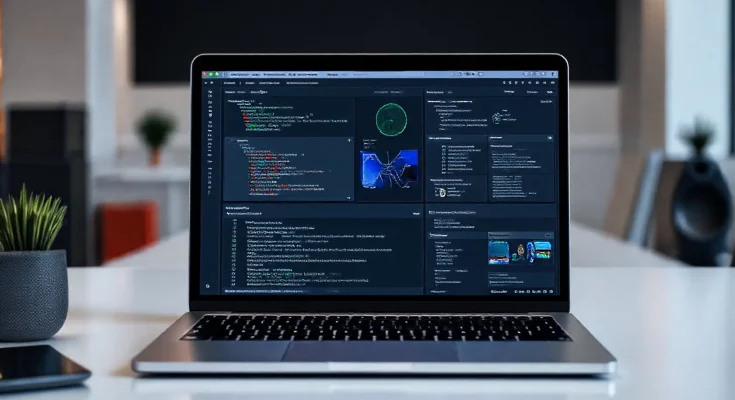In an exciting development for the tech community, OpenAI has announced the release of its groundbreaking GPT-OSS model. This free-to-download, open-weight model can be run seamlessly on personal laptops, marking the tech giant’s first major open-weight release in six years.
What is GPT-OSS?
The GPT-OSS model comes in two impressive variants: one with 120 billion parameters and another with 20 billion parameters. The larger variant is capable of running on a single Nvidia GPU and performs comparably to OpenAI’s existing o4-mini model. The smaller version operates on merely 16GB of VRAM and is similar in performance to o3-mini.
Customization and Licensing
OpenAI is primarily releasing the model via platforms like Hugging Face, Databricks, Azure, and AWS under the Apache 2.0 license. This means developers can easily modify the models for commercial use, enhancing accessibility and innovation in AI development.
A Shift in OpenAI’s Strategy
This release is significant as it showcases OpenAI’s re-engagement with the open-source community. Previously, CEO Sam Altman cited safety concerns as a reason for not releasing open models. However, following the rise of competitors like DeepSeek, the company recognized the importance of open models, which are favored for their lower costs and greater customizability.
Performance Capabilities
OpenAI claims that GPT-OSS can handle a variety of complex tasks, including:
- Reasoning tasks
- Web browsing
- Code generation
- Operating agents via OpenAI’s existing APIs
Safety Features
The GPT-OSS model has undergone rigorous testing, making it the safest iteration to date. OpenAI collaborated with external safety firms to assess the model’s risk levels, especially concerning sensitive issues like cybersecurity and biological threats. The model’s reasoning process is transparent, allowing monitoring for potential misbehavior and misuse.
Industry Impacts
While OpenAI has not released benchmark comparisons against other models like Llama or Google’s Gemma, initial assessments suggest that both versions of GPT-OSS perform well on testing parameters similar to closed reasoning models. This opens up new possibilities for smaller developers and companies seeking more control and flexibility over their AI implementations.
Future Prospects
Although OpenAI did not outline a timeline for subsequent releases of the GPT-OSS model, they expressed hope that making such technology more accessible would foster innovation. Greg Brockman, co-founder of OpenAI, stated, “If you lower the barrier to access, innovation just goes up.” This belief emphasizes the potential for surprising developments emerging from community-driven AI tools.
The release of GPT-OSS marks a pivotal moment in AI development. By making powerful AI capabilities available for free on personal devices, OpenAI is not only democratizing access to technology but also igniting a new wave of innovation in the AI space. As developers harness the potential of these open models, we can anticipate exciting advancements in how AI is integrated into various applications.



